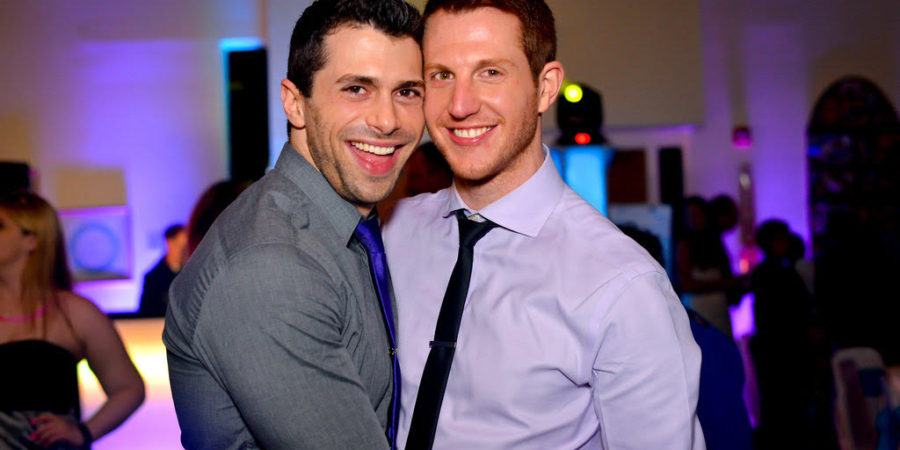Jonathan Lovitz has always loved being a performer: he studied theater in college, toured with national Broadway productions, and became a television host on Logo. But Lovitz, an openly gay man pictured above with his husband, had no idea his performing experience would eventually pay dividends off the stage, too.
After his theater and television career, Lovitz’s bold personality and recognition in the LGBTQ community landed him speaking gigs for major nonprofits. This time, he was on stage to raise awareness for issues near and dear to his heart. He found a passion for fighting for economic empowerment and equality for LGBTQIA+ people, and for supporting LGBTQ youth.
Lovitz worked his way through several communications positions, and well over two years ago, he joined the team at the National LGBT Chamber of Commerce, where he currently serves as Senior Vice President. Lovitz, now 33, is also the director of NGLCCNY, the national chamber’s affiliate and regional office in the New York City area.
Lovitz was previously based in the Big Apple for 10 years, but he just moved to Philadelphia. “My husband, Steve Sosna, got an amazing job here in Philly as the new weatherman for NBC News,” he says. “So we’re starting a new adventure here, but I get to do my NGLCC work from anywhere.” Lovitz says he’s essentially “tri-city” now since he lives in Philadelphia but does so much work in New York and D.C., though he also travels all over the world for work.
And everywhere he goes, he uses his speaking and engagement skills to raise awareness of important LGBTQ causes — and one day, he hopes to use them to run for political office.
Here’s the story of Lovitz’s unexpected career path, his political aspirations, the LGBTQ causes he’s fighting for, and why his work is so meaningful to him.
Profiles in Pride: What was your journey to coming out as a gay man?
Jonathan Lovitz: I am very lucky that my job now lets me speak to a lot of schools, and all throughout my career — I’m sure we’ll get more into this later, but when I was working on TV and on stage — I was always out. It’s hard for me to remember a time when I wasn’t.
And yet, like a lot of people, I very strongly remember those uncomfortable early teen years. Either when I did know myself and didn’t want to talk about it, or didn’t know myself yet and just couldn’t figure out what the heck felt so weird.
But I was very, very lucky to grow up in South Florida, which is a really inclusive and welcoming place. In fact, the county where I grew up, Broward County, was the first in the country to include LGBT student protections in school codes. So sort of unbeknownst to me, I was starting from a really good place. And I’d been really active in theater and music and the arts scene since I was really young, and that helped me be around fun, crazy, artistic people living all kinds of lives and showed me so many different perspectives. Which I know is a gift as a young person, to see, “Wow, not everyone has to be a cookie-cutter image of someone else!”
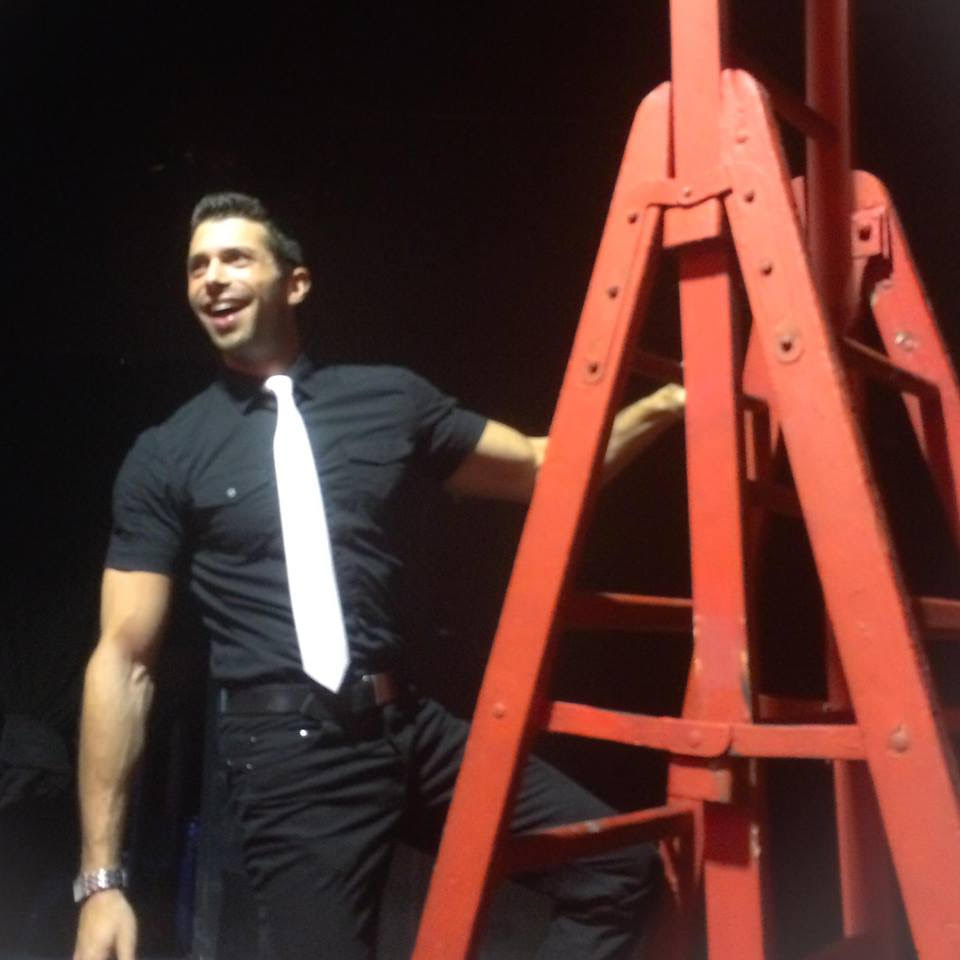
Growing up in Ft. Lauderdale was so valuable to helping me define who I am, especially once I started performing and being active in the theater, meeting all these incredible older gay men who had lived the life, who had lost partners to AIDS, who had been through the journey. They took me under their wing, and said, “Kid, here’s what I wish someone would have told me at your age. Also, you have a freedom now that we never had as kids — don’t waste that.” I’m so fortunate to have had that. And that’s why to me, to this day, working with youth is such an important part of my job and my volunteer time.
So my coming out journey was pretty normal, I think it was well supported by being a drama kid. And you know, I lived the life of a lot of those Glee kids. I was very lucky to have such supportive parents and friends. When I finally did come out to my close friends, and then my sisters, and then ultimately my parents, I never once felt unsupported. I know how lucky that was for me, and how rare that is, so I feel a very strong personal obligation to do everything I can for young people, because my journey was not like so many.
PIP: You’ve done so many different kinds of work. How did you begin your career, and what led you to the work you’re currently doing?
JL: I graduated college in 2002; I went to the University of Florida, where I studied musical theater and really began to develop a passion for political science and communications. So I started taking a lot of courses in that as well.
But managed to be that .001% of theater kids who graduated college with a show, and I went right on tour with a national Broadway show right out of college in 2006. And that was really amazing on a lot of levels — one, because I was getting paid to do what I studied, which is rare. So I’m 21 years old, still a young gay man, and I’m being paid to travel across America, sing and dance my heart out, and experience gay life in all 50 states. It was incredible! I met the most amazing LGBT people from all walks of life, from all socioeconomics. And it was one of the most incredible, eye-opening experiences I’ve ever had. I got to see how rich and diverse America really is, and that did more for me than I really could ever say.
So I toured for a few years, I moved to New York, worked in the theater there and all across America, and then started doing some television. Like everyone else, was just doing the small bits on soap operas, you know, the thing you do to pay your bills, like the background guy on Law and Order.
I eventually got a screen test for a pilot at MTV. And when I was done there, a friend who was a producer said, “Hey, while you’re in the building, why don’t you come screen test for Logo? You’re openly gay, and we’re doing a lot of really awesome gay content, and we need young, smart, articulate hosts for some of these programs.”
So I’m doing a screen test for them, and before you know it, I’m doing all of these awesome unscripted things. Some of them are news related, some are politics related, some are dating related; just all of these fun, diverse projects for Logo around 2009 or so, when the network was really just taking off.
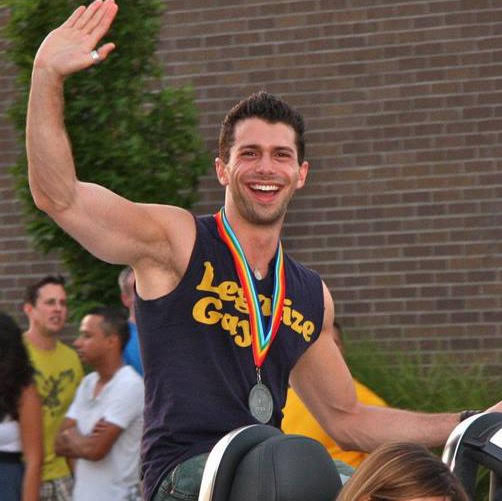
Because I was, at this point, really young and very open about my sexuality on TV and building this sort of Internet presence where the community knew who I was, I was getting asked by people at GLAAD, and The Trevor Project, and HRC — different organizations to come speak for them and fundraise and do special projects, and a lot of engagement with youth and college students. And I just fell in love with that so much. Along that journey, I met the NGLCC, who had me speak at one of their dinners. I really fell in love with their mission of intersecting business and LGBT rights. And I have never left the industry.
Every day, I still feel like I’m as fulfilled and as inspired as I was in the theater or on television in the work I do serving the community, because it’s all about making people believe your story. And convincing them that, however long I have you captivated, I need you do something at the end of that. It’s either applaud, or give money, or mentor a child — or whatever it is, I want you to walk away from this doing something. So I could never be the advocate or lobbyist that I am today had I not had all those years performing.
So along that journey, like I said, I was working with a lot of groups that focus on youth. I love the work of The Trevor Project and Tyler Clementi Foundation. Now I work very closely through NGLCC with The Matthew Shepard Foundation. That means so much to me, one, because I think Matt’s parents are so incredible, and I feel so blessed to know them, but also because one of my favorite roles when I was still in the theater was in The Laramie Project, which is the story about what happened after Matthew Shepard’s death. So to be sort of full circle now and working for the benefit of causes like those that we talked about in that play is really special to me.
PIP: Can you tell us more about what the NGLCC is and does?
JL: The NGLCC is the business voice of the LGBT community. Our goal is to make sure every economic opportunity that is available to everyone else is available to LGBT people, and that we’re using the economic influence of the LGBT community and its supporters to affect change in America and around the world anywhere.
So anywhere you see the conversation about business or money or equal opportunity, we’re there making sure the LGBT voice is at the table and representing the $1.7 trillion that LGBT people put in the economy every year in the U.S.. Now we’re taking that mission to five continents around the globe. NGLCC Global is now working to increase economic opportunity and human rights all around the world, so it’s a pretty incredible mission.
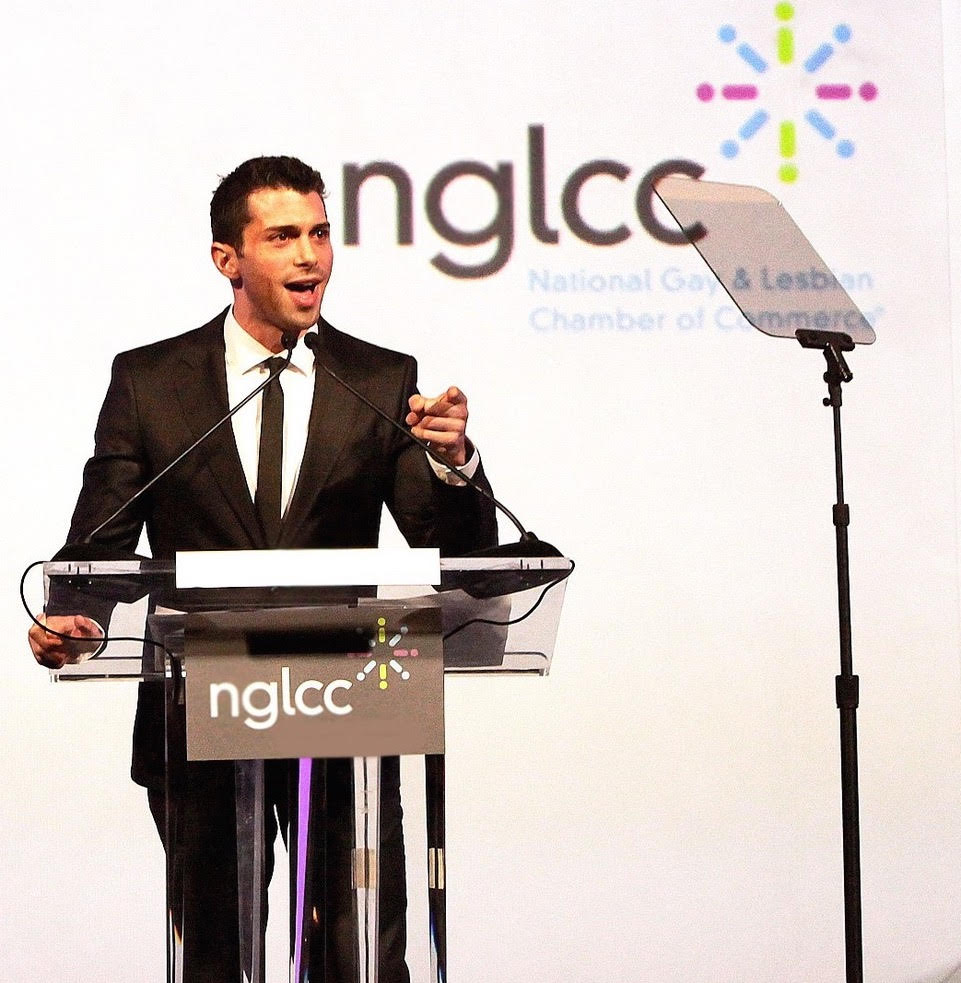
PIP: Before you were at the NGLCC, you ran communications at StartOut, a nonprofit dedicated to supporting LGBTQ entrepreneurs and business leaders. Can you talk about your experience in that role?
JL: That’s another one of those things — if there’s anything I want to underscore as a thread throughout my dialogue with you — saying yes to the thing that scared me most is what has always led me to the most wonderful things in my life. For me, I had no experience running a nonprofit organization. But when the, at that point, CEO of StartOut was brand new, he said, “I need some help: I need a communications director that can help me sell this organization to the community and understand why entrepreneurship is such an important avenue for our community succeeding.” And I was thrilled to join him on that, and that he trusted me.
I was also terrified because I had no idea what I was doing! But I’m a quick study, and I consulted with all the smart people who knew what they were doing, and next thing I know, he takes a sabbatical, and I am the acting executive director of this organization!
And I learned so much about what it takes to help the community, how many incredible, passionate people there are out there willing to help, and how important storytelling is, and listening to people who have a different experience than you. It will always reveal something amazing about yourself you didn’t know when you find that commonality, but also really open up your eyes to the variety of perspective and lives out there that are nothing like yours, and how lucky we are to get to know people like that. I learned so much on that job.
And the cofounders of NGLCC were similarly looking for a communications person, someone to really help them tell their story, especially as the organization was nearing its 15th anniversary, which we just hit. So I came on board at just the right time.
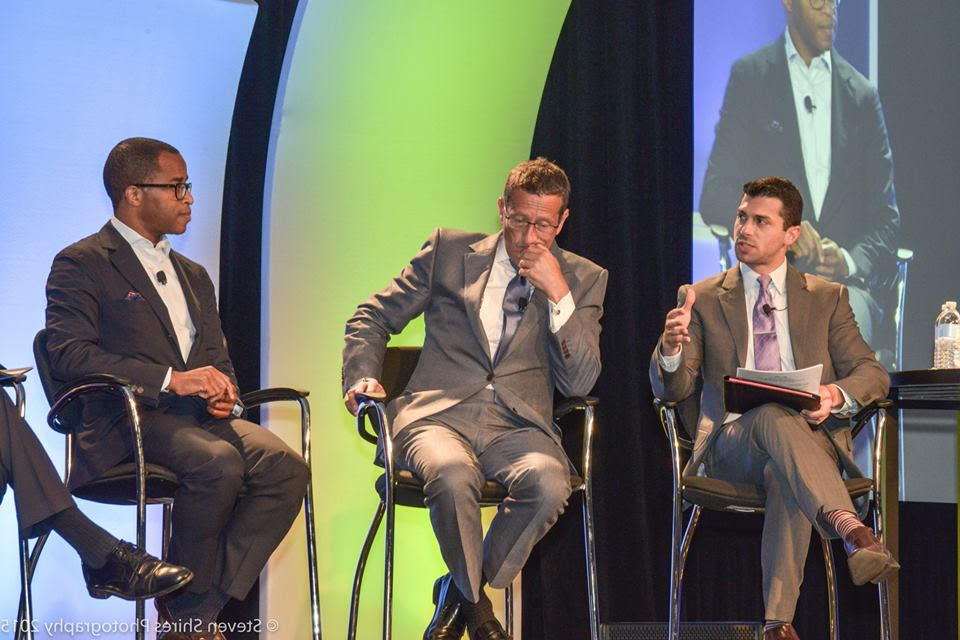
We just celebrated the 15th anniversary of the NGLCC, we are gearing up for our biggest year yet, and I feel so lucky to be a part of this. Because of my background working in television and working with the press so much in my previous jobs, I’ve gotten the very fortunate position to be our de facto spokesperson. I’m out in the field all the time talking to the press and at many conferences. I’m being paid to do what I’ve always loved to do my whole life, which is try to move people to give a damn! Somehow I was able to make that work for a career. And I am one lucky fellow because of it!
PIP: That’s amazing. Storytelling is so powerful and changes hearts and minds sometimes — that’s why this blog exists!
JL: Absolutely. And I think years from now, as we continue to reflect on how we won marriage and some of the other fights that are going on, I think that part of it will always be the most resonant underlying element of how we won.
Everything changed for our community when LGBT people stopped being “those people over there” and became “these people we love over here.” We went from being strangers who just want to get married to “my kid’s teacher, my nephew, my friend that wants the same rights I do. Why wouldn’t I want them to be happy?”
And similarly, with the transgender bathroom bills — this is not some stranger, this is my neighbor, this is my friend, my friend’s girlfriend. These are real people who these heinous laws are interrupting their right to be free and happy just like me, and I’m not going to stand for that.
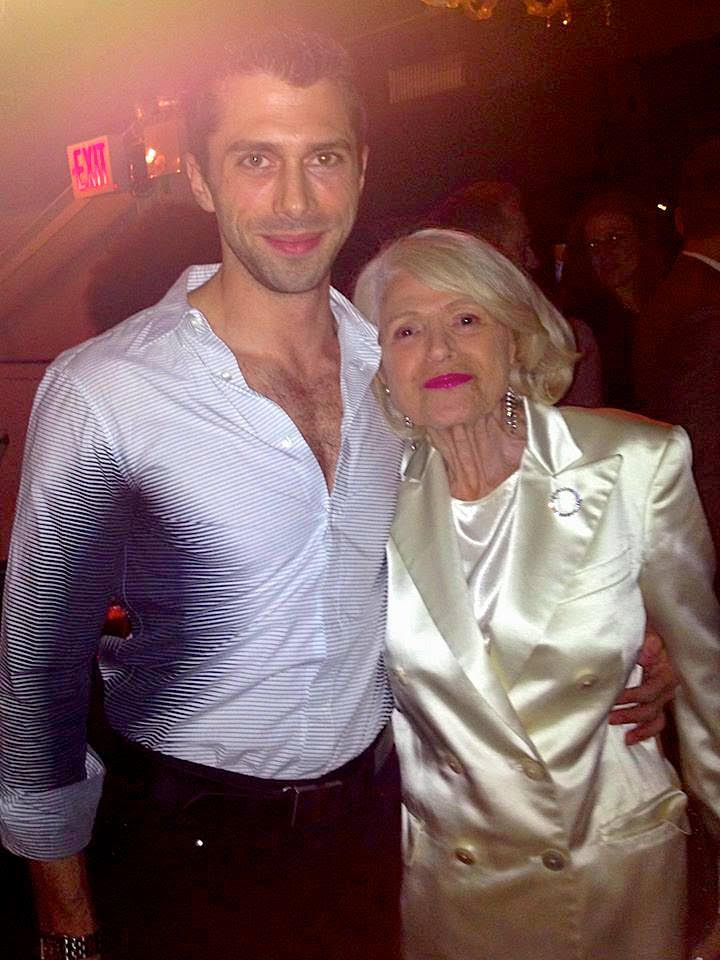
PIP: You mentioned earlier that you like politics. What type of political work are you involved in?
JL: I’m such a political junkie, it’s my favorite sport. I get really active. When I was in college, it was sort of my first taste of professional politics. I was getting involved with the Kerry campaign, because that was really the first major Democratic campaign to embrace the LGBT community as a voting bloc and do targeted outreach and really engage them. So I learned a lot then and have always sort of stayed involved with the Democratic party, did a lot of fundraising for both Obama and Hillary, as well as a lot of candidates along the way.
I myself am very much considering a run in the future! I’d love to serve in public office; it’s something I’ve always wanted. And I’m getting a lot of pressure from friends saying, “You’re not getting any younger, so put up or shut up!” So I think sooner rather than later I’ll have to start making some decisions.

For now, my job at NGLCC also allows me to be very involved politically, because the work we’re doing in making economic opportunity happen for LGBT community in the private sector, in corporate America, is years ahead of where the public sector is. So right now, you have these programs that help women and ethnic minorities get access to economic opportunities all over the country, but most of those programs in the public sector that use our taxpayer dollars to grant equal opportunity do not include LGBT people.
So my job every day is to go and work with political organizations, members of state legislatures, governors, etc., to make that happen. Case in point, this morning, I was working with a team in New Jersey because we have a bill there that has cleared both houses and is working its way to the governor’s desk to finally include LGBT people in the same way we have done it in California, Massachusetts, and Pennsylvania. So we’re a political powerhouse too, trying to make economic opportunity happen for our community in the public sector, as much as we are for corporations. And it feeds the political junkie in me!
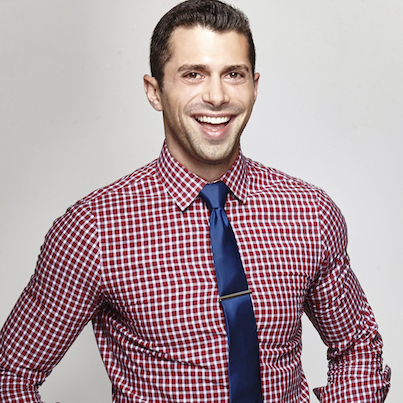
PIP: Is there anything else about you that you want to share with our readers?
JL: The only thing that we didn’t cover is I just got married in October! And that in itself — it’s one thing to believe in a right and fight for it, because it’s the right thing to do. It’s another thing to have something affect you, you know? And it made me all the more acutely aware of why we should all be fighting for things that are about making things equal for everybody and not just people like us.
Not everybody wants to be married, but everyone should have the opportunity. Not everybody needs to use certain bathrooms, but everyone should have the right to. So getting married and being with a partner who’s also very public about who he is and is willing to be on this journey with me, where we’re working with youth and the community in a very public way, it means so much to me. I’m so lucky to have a partner who’s as excited to be active with youth, and helping, particularly LGBT kids find access to science education.
Connect with Jonathan on Twitter and Instagram at @jdlovitz or on Facebook at facebook.com/thejonathandlovitz.

